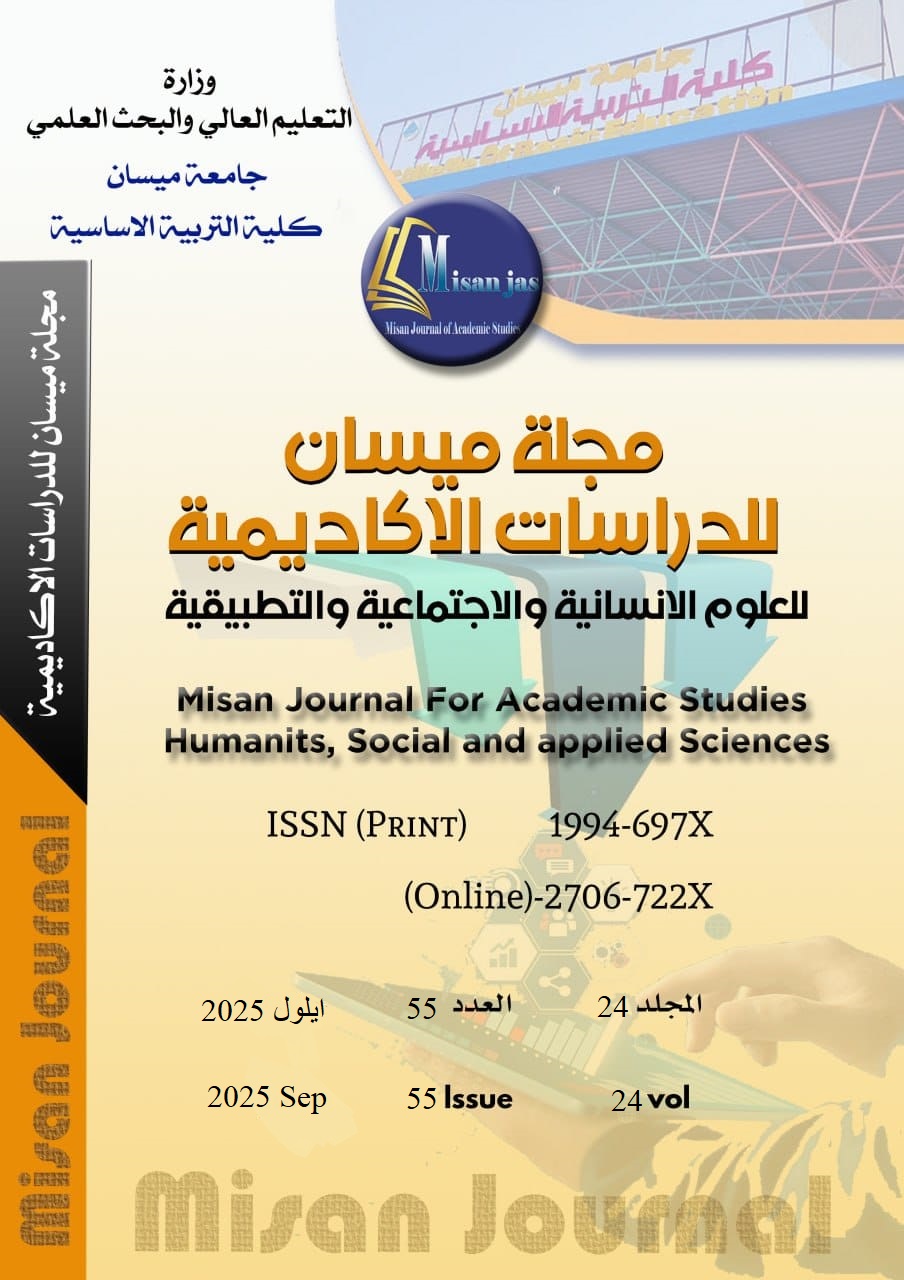The Subjugation of Bodies, Gender, and Biopolitics in Nawal El Saadawi's Woman at Point Zero
Abstract
The subject of patriarchal systems, especially in eastern societies, has attracted literary writers, activists, and politicians, because of its importance and direct effect on women. The present study examines the subjugation of women's bodies, gender roles, and biopolitics in one of Nawal El Saadawi’s novels: Woman at Point Zero (WPZ). For accomplishing the aim of the study, the research has adopted Michel Foucault’s theory of power relations as the theoretical framework. It, through the analysis, examines patriarchal structures in African and Middle Eastern societies and their role in strengthening male dominance and preserving the systemic oppression of women. Firdaus, the novel's protagonist, develops as a strong symbol of female suffering and resistance under a system of psychological, physical, and sexual control. The study discloses how internalized trauma and cultural conditioning lead to the unconscious submission of women. It further explains the impact of religious and cultural bases on deepening female oppression and provides vision on how modern theory, especially Foucauldian biopolitics, can critically engage with these systems of dominance.
Downloads
Copyright (c) 2025 (Humanities, social and applied sciences) Misan Journal of Academic Studies

This work is licensed under a Creative Commons Attribution-NonCommercial-NoDerivatives 4.0 International License.
The copyright is also the copyright of the magazine only.
All articles published in our magazine are subject to license terms
Creative Commons Attribution(CC BY-NC-ND 4.0) This license permits the content to be reproduced, redistributed and reused in whole or in part for any purpose free of charge, without any permission from the author(s), researcher or student.
Works submitted to Maysan Journal of Academic Studies for publication in the journal (CC BY-NC-ND 4.0) license terms. Where available content can be shared, distributed and replicated provided there is no commercial profit and appropriate credit must be given to the original source through sources or citations. It is mandatory to review any material used from other sources including shapes, tables, and images for re-use under the terms of the Creative Commons License (CC BY-NC-ND 4.0).Provided that there is no modification to the original content



